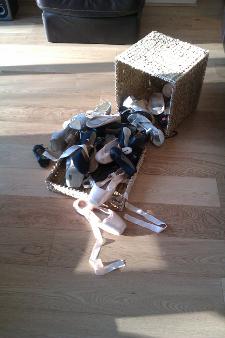Bronze Arts Award
At this level the young person enjoys an exploration of the Arts.
There are four parts:
explore the arts as a participant.
explore the arts as an audience member.
undertake a project of an inspirational personal arts hero.
and, passing on art skills to others.
We have themed packs based on a variety of performing and visual arts, and a non-themed pack which allows young people to look at their favourite artforms.
Silver Arts Award enables young people to develop their own arts practice and arts leadership skills, underpinned by knowledge of their own art form and its relationship to arts provision in the community. They demonstrate their artistic imagination in their own art form and the ability to implement appropriate responses to challenges.
Young people develop their ability to analyse situations, design appropriate action plans and
review outcomes. They demonstrate effective communication in a range of situations, showing
an ability to convey information and provide some justification for their approach.
Young people create a personal arts portfolio containing evidence of their experiences.
There are two parts:
Unit 1: Arts practice and pathways
the Arts challenge
■ Identify and plan an arts challenge (part A)
■ Implement and review the arts challenge (part B)
Arts pathways
■ Review arts events/experiences (part C)
■ Undertake arts research (part D)
Unit 2: Arts leadership
Plan the project
■ Identify leadership role and plan the project’s aims (part A)
■ Plan the practical issues (part B)
Deliver the project
■ demonstrate effective arts leadership (part C)
■ Working effectively with others (part D)
Review the project
■ Review the project and development of leadership skills (part E)
For Silver Arts Award, the adviser assesses young people in the following areas:
■ Art form knowledge and understanding
■ Creativity
■ Planning and review
■ Communication

Gold Arts Award
This level enables young people to develop an understanding of the skills, knowledge and
working practices relevant to their own art form and take responsibility for their own art form
development.
They show their artistic imagination and originality, demonstrating a range of
creative responses which are appropriate and new to them.
They are able to evaluate and use information to design imaginative plans which can deal with
unfamiliar or unexpected problems, analysing and reflecting on the success of their plan and
drawing appropriate conclusions.
Young people demonstrate an ability to communicate complex
ideas with some skill, differentiating effectively between various types of audience and mounting
persuasive arguments in support of their own views or opinions.
Young people create a personal arts portfolio containing evidence of their experiences.
Gold Arts Award has two units
Unit 1 is about personal arts development and unit 2 is
about developing leadership skills in the arts.
Assessment
To pass unit 1 and unit 2 of Gold Arts Award, young people are required to create an individual
arts portfolio that demonstrates how they meet all of the following requirements:
Unit 1: Personal arts development
■ Extend own arts practice (part A)
■ Identify and participate in development opportunities within the wider arts sector (part B)
■ Research advanced practitioners and review arts events/experiences (part C)
■ Form and communicate a view on an arts issue (part D)
Gold Arts Award summary
Unit 2: Leadership of an arts project
■ Plan the project - Identify the project aims and outcomes (part A)
■ Plan the project - Organise the people and resources (part B)
■ Deliver the project - Manage the effectiveness of the project (part C)
■ Deliver the project - Manage a public showing of the work (part D)
Review their leadership of the project
■ Review their leadership development and find effective ways to collect and evaluate feedback
from participants, audience members and other stakeholders (part E)
For Gold Arts Award, the adviser assesses young people in the following areas:
■ Art form knowledge and understanding
■ Creativity
■ Planning and review
■ Communication.
